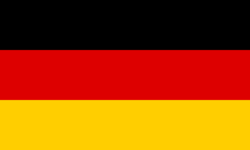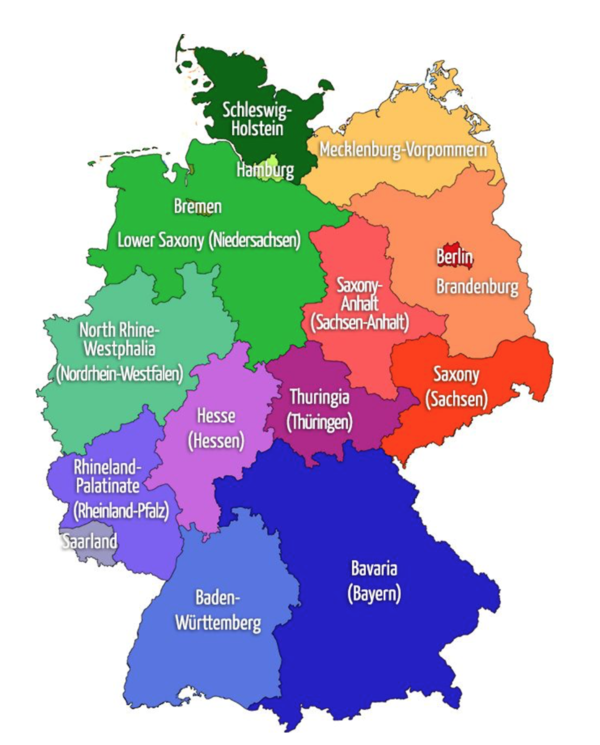Ancestry Blog How To Find Your Family In Germany
| Germany Wiki Topics | |
| | |
| Beginning Research | |
| |
| Reading the Records | |
|
|
| Record Types | |
|
|
| Germany Background | |
|
|
| Local Research Resources | |
| |
| Moderator | |
| | |
Guide to German ancestry, family history, and genealogy: birth records, marriage records, death records, census records, family history, and military records.
Country Information [edit | edit source]
Germany is a vibrant country with a rich history and heritage. As with many countries of Europe, Germany has seen dramatic changes to its borders and even its internal regions. Over the centuries, Germany consisted of numerous independent kingdoms, duchies, principalities, and states. Then in 1871, all German-speaking states except the Austrian states were consolidated into the German Empire. [1]
Getting Started [edit | edit source]
Finding Your Ancestors' Town of Origin in Germany [edit | edit source]
Records are kept on the local level. You must first identify the name of the town in Germany where your ancestors lived. If you do not yet know the name of the town of your ancestor's birth, there are well-known strategies for a thorough hunt for it.
- Use Germany Finding Town of Origin as a guide in exhausting every possible record to find what you need.
The German Empire 1871, Meyer's Gazetteer, and FamilySearch Records [edit | edit source]
Germany was first unified as a nation in 1871. The German Empire consisted of 26 states, most of them ruled by royal families. They included four kingdoms, six grand duchies, five duchies (six before 1876), seven principalities, three free Hanseatic cities, and one imperial territory. An important gazetteer, Meyers Orts- und Verkehrslexikon des deutschen Reichs , "Meyer's Gazetteer" for short, details the place names of villages, towns. counties (kreise), and higher jurisdictions used at that time. As FamilySearch began microfilming the records of Germany, those records were organized in the Card Catalog using those place names. That system is still in use today in the FamilySearch Catalog and FamilySearch Historical Records.
At the end of both World Wars, the boundaries of the states were changed dramatically, as areas of Germany were distributed among the Allied nations. Eventually, after re-unification in 1990, the states of Germany settled into what they are today. It is also necessary to understand Germany by this system, as it affects the locations of archives and mailing addresses used in correspondence searches.
Finding Your Town's Province, Kingdom, or Duchy in 1871 [edit | edit source]
Once you know the town where your ancestors lived, consult a gazetteer for more details. You will need to identify the jurisdictions it belonged to in 1871, especially the province or duchy. Also, you might need to identify nearby towns where they attended church and where they registered births, marriages, and deaths with a civil registrar. Use Meyer's Gazetteer or a regional online gazetteer. For help, see Finding Aids For German Records.
Finding Research Instructions and Links to Records [edit | edit source]
For each province or duchy, this wiki provides a detailed set of articles teaching you how to carry out your research project, including links to online records. These clickable maps and jurisdiction lists will link you to the instructions for your locality. Use the first map if you are looking for ancestors who lived before 1945. Use the second map if you are looking for records after 1945.
Provinces, Kingdoms, and Duchies of the German Empire: English (German, if different) [edit | edit source]
Click on the names of the province or duchy to find detailed instructions for family history research for that locality.
| Independent From Prussia
| Prussia (Preussen)
| Thuringia (Thüringen)
| City-States
|
Clickable Maps: The German Empire, 1871-1918 [edit | edit source]
Click on the names of the province or duchy to find detailed instructions for family history research for that locality.
| Map 1: German areas | Map 2: Prussia (Preussen) |
| Map 3: City-States | Map 4: Thuringian States |
Clickable Map: Modern Germany (1945-Present) [edit | edit source]
Clicking on one of these states will take you an article explaining family history research after 1945, when these states were created.
| |
Map of Territory Changes Between 1918-1946 [edit | edit source]
Because of the treaties at the end of World War I and II, portions of German territory were granted to other countries. This map summarizes the changes.

More Germany Research Strategies and Tools [edit | edit source]
- Germany Empire and Current States--maps
- Finding Aids for German Records
- German Research Troubleshooting Strategies
- The German Genealogy Wiki (GenWiki) - English Version
- GenWiki - German Version
- Germany Genealogy Resources from Federation of East European Family History Societies (FEEFHS)
- German Research Websites
- German Genealogy MetaSearch
- Research Tips and Strategies
- German Resources
- Calendar Changes in France, Germany, Switzerland, and the Low Countries
- Old German Script Transcriber (alte deutsche Handschriften): See your family names in the script of the era. Type your name or other word into the font generator tool. Click on the 8 different fonts. Save the image to your computer and use it as you work with old Germanic records.
- German Research, BYU Independent Study, no cost.
- These printable handouts can be used for ready reference when reading German Handwriting.
- Letters:
-
- Kurrent Letters handout
- Additional Kurrent Letters handout
- Vocabulary found on Specific Records:
-
- Birth Records Vocabulary handout
- Marriage Records Vocabulary handout
- Overview of Marriage Laws and Customs (handout)
- Death Records Vocabulary handout
- Dates, Numbers, Abbreviations:
-
- Days and Months handout
- Numbers Vocabulary handout
- Script Dates and Numbers handout
- Common Abbreviations handout
- Common Symbols handout
- Miscellaneous Vocabulary:
-
- German Occupations Vocabulary handout
- Illnesses Vocabulary handout
- Fraktur:
-
- Fraktur Font -- Many forms and books are printed in this font.
- German Given Names:
- List of Names in Old German Script -- A comprehensive list of German given names, written in old script, with possible variations.
FamilySearch Resources [edit | edit source]
Below are FamilySearch resources that can assist you in researching your family.
- Facebook Communities - Facebook groups discussing genealogy research
- Germany Classes and Tutorials - Germany Online genealogy courses in the Learning Center
- Historical Records - Germany Locality Page
- Family History Center locator map
References [edit | edit source]
- ↑ Wikipedia contributors, "Germany," in Wikipedia: the Free Encyclopedia, https://en.wikipedia.org/wiki/Germany, accessed 23 March 2016.
Ancestry Blog How To Find Your Family In Germany
Source: https://www.familysearch.org/wiki/en/Germany_Genealogy
Posted by: hodgesnount1981.blogspot.com








0 Response to "Ancestry Blog How To Find Your Family In Germany"
Post a Comment